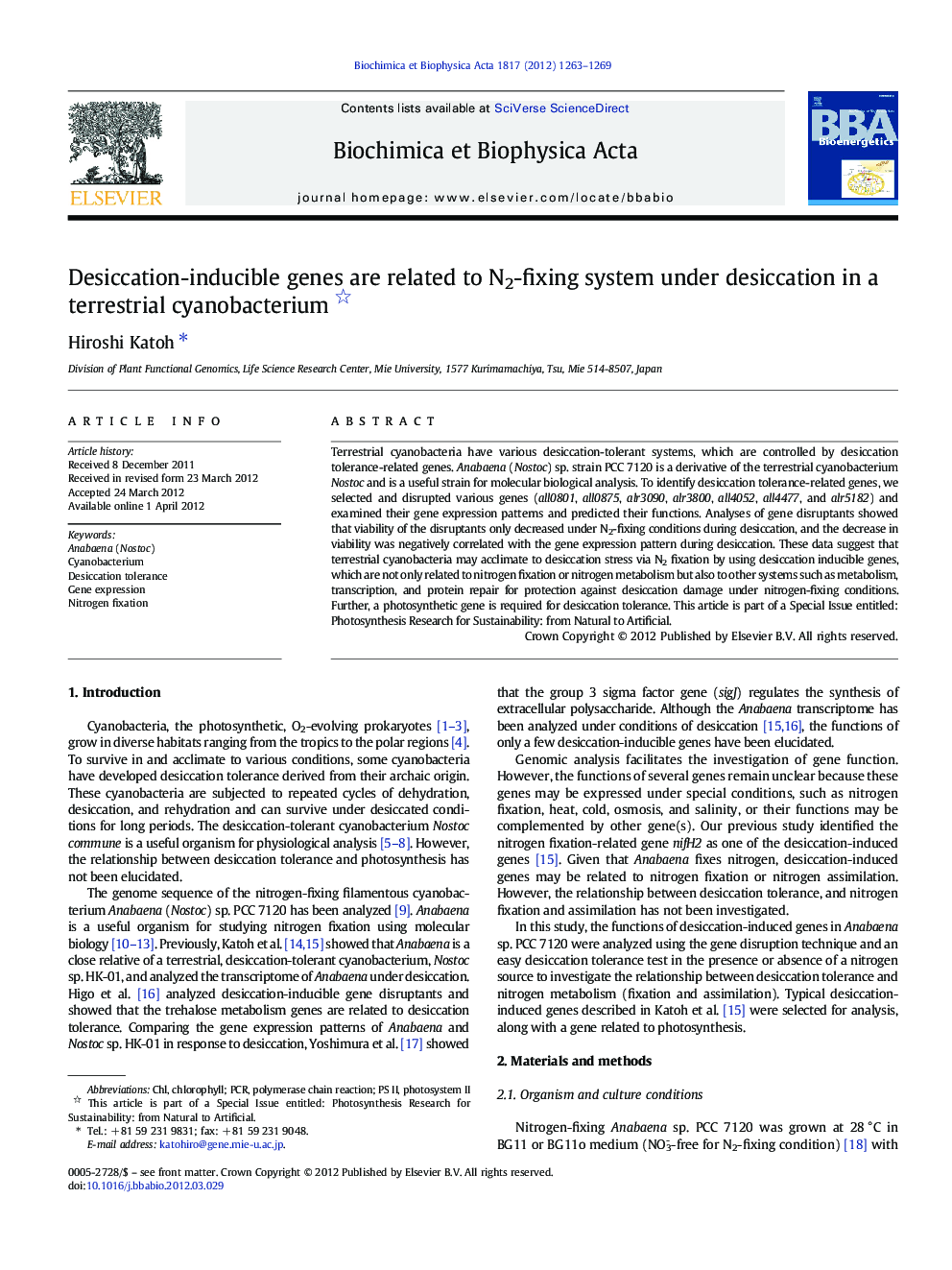| Article ID | Journal | Published Year | Pages | File Type |
|---|---|---|---|---|
| 1942397 | Biochimica et Biophysica Acta (BBA) - Bioenergetics | 2012 | 7 Pages |
Terrestrial cyanobacteria have various desiccation-tolerant systems, which are controlled by desiccation tolerance-related genes. Anabaena (Nostoc) sp. strain PCC 7120 is a derivative of the terrestrial cyanobacterium Nostoc and is a useful strain for molecular biological analysis. To identify desiccation tolerance-related genes, we selected and disrupted various genes (all0801, all0875, alr3090, alr3800, all4052, all4477, and alr5182) and examined their gene expression patterns and predicted their functions. Analyses of gene disruptants showed that viability of the disruptants only decreased under N2-fixing conditions during desiccation, and the decrease in viability was negatively correlated with the gene expression pattern during desiccation. These data suggest that terrestrial cyanobacteria may acclimate to desiccation stress via N2 fixation by using desiccation inducible genes, which are not only related to nitrogen fixation or nitrogen metabolism but also to other systems such as metabolism, transcription, and protein repair for protection against desiccation damage under nitrogen-fixing conditions. Further, a photosynthetic gene is required for desiccation tolerance. This article is part of a Special Issue entitled: Photosynthesis Research for Sustainability: from Natural to Artificial.
►Desiccation induced genes are analyzed by gene disruption. ►Desiccation induced genes are related to nitrogen fixing system. ►Desiccation tolerance test using gene-disruptants can estimate gene induction point. ►A photosynthetic gene constitutively expressed is related to desiccation tolerance.
